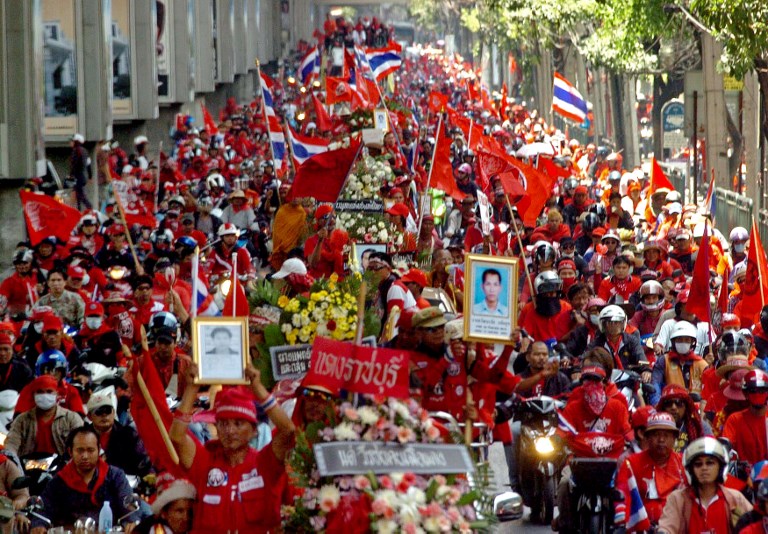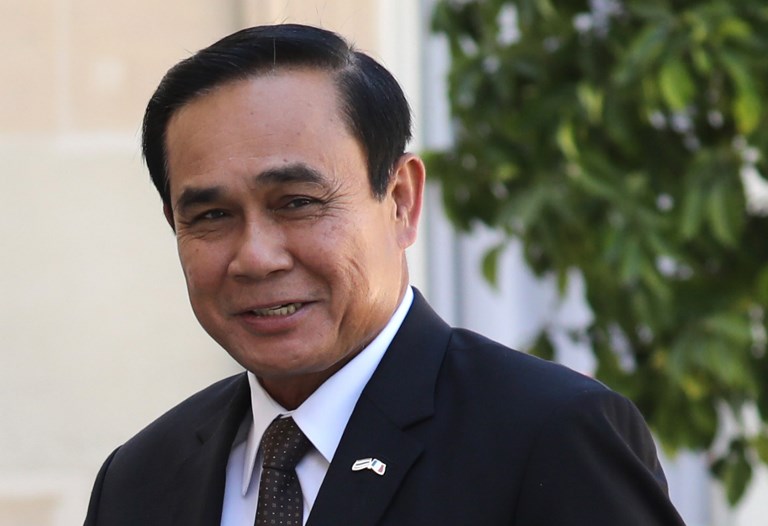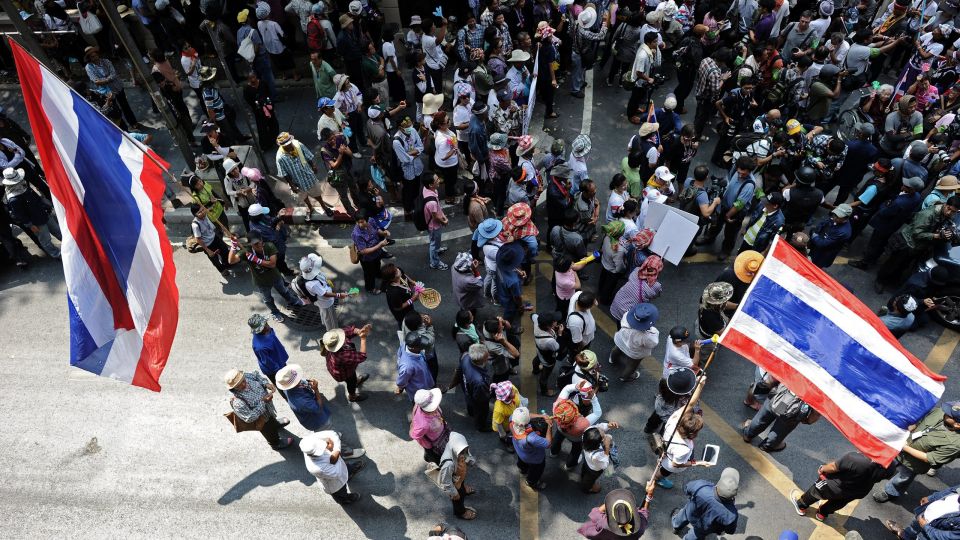September 21, 2018
The Thai middle class’ Faustian bargain with the military is hampering true democracy in the country.
Almost ten years ago, I met a protester on the streets of Bangkok. It was a time of protest and political instability with the drama between the government and protesters spilling out onto the streets. To protect his identity against possible military reprisal, let us call him Nadech.
Nadech will unlikely be recorded in history books, he was not a political leader, nor a despotic general or any other archetype of Thai history. He was a simple junk-store hawker, an occupation that involves going from house to house and sorting garbage to sell. His family had done well enough through grit and hard work to open a small convenience store in his home province.
Nadech had taken to the streets in 2010 because he had believed the promises that exiled Prime Minister Thaksin Shinawatra had made and had seen, first hand, the changes that Thaksin had brought. The single-payer health care system that had helped his mother and children, the microloans that bought him his car, the subsidies that helped his farmer friends. I was struck by Nadech’s earnestness and conviction and realized that Nadech’s political awakening was a mirror of a much larger movement.
He had listened to pro-Thaksin radio stations and agreed with their view that when the military deposed Thaksin, it was the elite of the country changing the rules of the game to prevent the lower classes from taking control.
During the protests of 2010, I asked Nadech, what about the allegations of corruption against Thaksin? What about the damage to the economy this would bring? Were the benefits that he was experiencing worth bankrupting the nation? He replied that all politicians in his memory were corrupt, at least Thaksin was helping the people while doing so. Nadech would stay at the red-shirt protests through 2010 until the military launched a violent crackdown which resulted in over 90 deaths and countless more injured. Nadech would escape unscathed.

A Different Protest
Fast forward four years and Bangkok’s streets were once again filled with protesters, this time of a different color. These protesters, wearing Thai flag adorned attire and blowing loudly into whistles, drew mostly from the country’s urban middle class and higher echelons of Thai society. The protests themselves became a social media event with prominent members of the business community, celebrities and socialites posting protest Instagram pictures and Facebook posts.
Led by former Deputy Prime Minister Suthep Thaugsuban, the protesters demanded the removal of the government led by Thaksin’s sister Yingluck Shinawatra, accusing it of corruption and being a proxy for the exiled Thaksin. The flashpoint which drew out the protest was an amnesty bill introduced by Yingluck’s government which would pave the way for Thaksin’s return.
But even after the government withdrew the amnesty bill, the protests continued. Many protest leaders called for a ‘reset of democracy’ with a French revolution reign-of-terror style council to judge politicians and dole out sentences. Suthep and his compatriots called for the military to step in and take command, claiming the country was at a breaking point.
When the army chief Prayuth Chan-ocha finally launched a coup d’état on May 22, 2014, the protest leaders gathered at a high-end Bangkok restaurant dressed in military-style clothing to celebrate their victory.
I returned to Nadech after the protest and subsequent coup to ask him his thoughts. He said he was angry that he was right. He said that the red-shirts knew that the military and upper-class Thais would never accept the choice of government elected by the poor. I mentioned the amnesty bill, the corrupt rice scheme that Yingluck had put in place which benefitted her cronies at the cost of billions to the economy. I said, to a lot of people, there were not enough checks and balances that could stop politicians from hurting the country even if they were democratically elected. Nadech asked what kinds of checks and balances will stop the army from doing the same now that they were in power. I had no answers for him.

Military Rule
It is 2018, the military has ruled for over four years, bringing in sweeping reforms, a new constitution that enhances military power, and mega-construction projects. The prime minister and former coup-maker Prayuth Chan-ocha, rules with absolute power. He has at his disposal a ‘dictatorial clause’ within the legal framework that allows him to step in on any issue at any time and do as he pleases. Journalists have been arrested, activists have been silenced and political parties are not allowed to congregate or meet. Prayuth promised elections within a year of taking power, the goalposts have repeatedly been moved.
In his first few years of rule, the military dictator enjoyed positive approval ratings among the Bangkok middle class and even among the rural poor. Both groups, fatigued by a decade of political instability and protests, welcomed the lull. But after four years of military rule, there are cracks appearing in the junta’s façade. A sluggish economy coupled with rising household debt and commodity prices have hurt the working class while corruption scandals, including a luxury-watch saga involving the deputy prime minister, have raised questions from the urban middle class.

But unlike in a democracy, there is no alternative to the current government. Protests are illegal and dissent is met with repression and lengthy legal proceedings. One cannot simply vote out the junta, only stand by and hope that Prayuth fulfils his promise to hold an election. Even then, the framework put in place by the military will see them wield significant power no matter the outcome of the elections.
It also seems that the political awakening that the poor had experienced in the early part of this century has taken a large step backwards. As Nadech puts it:
“What is the point of democracy anymore? Even if we vote in someone we like, they will just get rid of them again. We are done, they arrest us, kill us, silence us, it is better to just go back and take care of our businesses and farms.”


